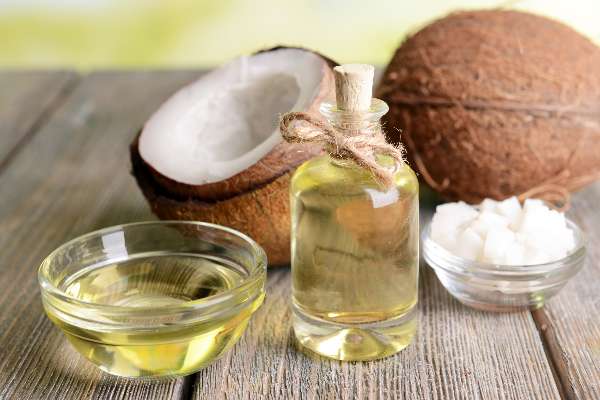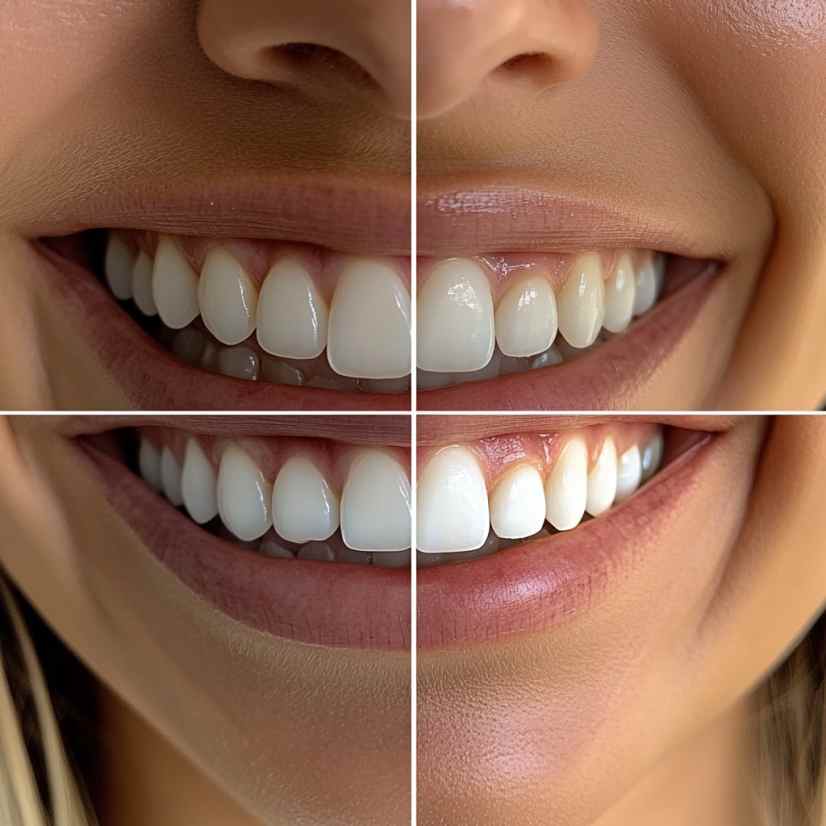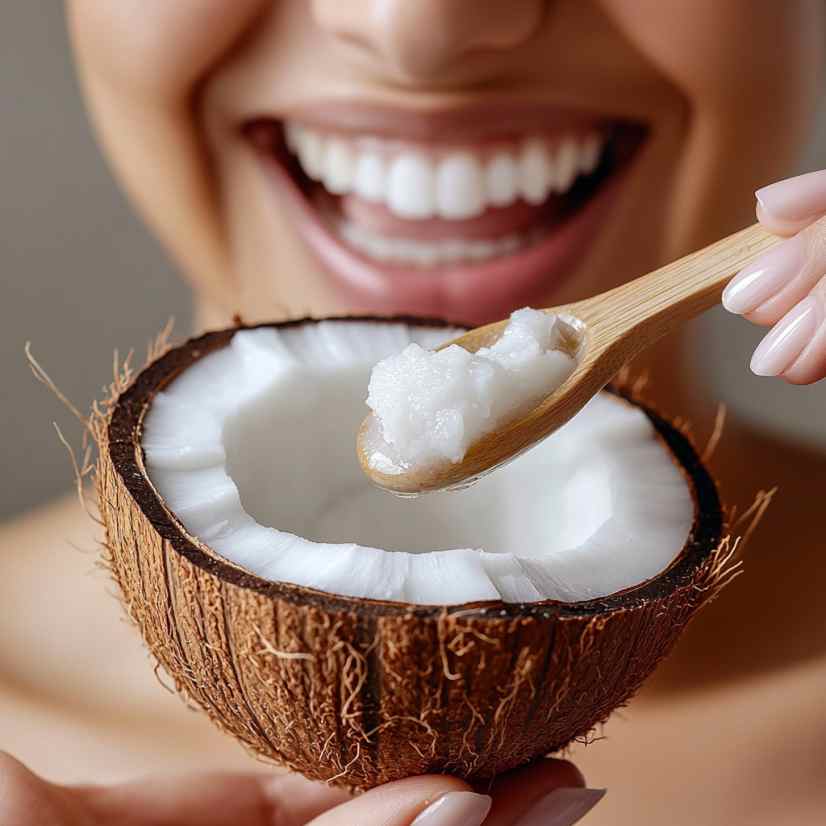Whiten Teeth And Heal Gums With Oil Pulling

Make sure to like Living Green and Frugally on Facebook, Shop at amazon to help support my site and explore our PINTEREST BOARDS for innovative ways you can become self-sufficient.
Oil pulling has gained significant popularity as a natural method for promoting oral health, helping to whiten teeth and heal gums. The practice, rooted in ancient Ayurvedic medicine, involves swishing oil in the mouth to draw out toxins, combat harmful bacteria, and promote overall dental hygiene. This blog post will provide a comprehensive guide on how to whiten teeth and heal gums with oil pulling, covering everything from why it works, how to do it, and answering common questions to help you maximize your oil-pulling results.
What is Oil Pulling?
Oil pulling is a traditional oral health technique that involves swishing oil (such as coconut, sesame, or sunflower oil) around in your mouth for 10–20 minutes before spitting it out. The benefits of oil pulling go beyond mere cosmetic enhancement; it’s said to help with issues like gingivitis, bad breath, and general gum health. The idea is that swishing oil draws out toxins from your mouth, loosens plaque, and provides a gentle means to whiten teeth naturally without harsh chemicals.
Why Does Oil Pulling Work?
The mouth is home to hundreds of bacteria species, many of which contribute to plaque formation, gum disease, and tooth discoloration. Swishing oil around the mouth draws out impurities, acting as a natural cleanser that helps to remove unwanted toxins and bacteria. Coconut oil, in particular, contains lauric acid, known for its strong antimicrobial properties, making it a powerful choice for those focused on combating bacteria and keeping their gums healthy.
Benefits of Oil Pulling for Whitening Teeth and Healing Gums
- Whiten Teeth Naturally: Oil pulling is known for its gentle whitening effects due to the removal of plaque and bacteria that contribute to staining.
- Reduce Gum Inflammation: Regular oil pulling helps reduce inflammation in the gums, making it beneficial for those suffering from gingivitis or sensitive gums.
- Kill Harmful Bacteria: Oil pulling eliminates harmful bacteria in the mouth, which can prevent cavities and reduce the risk of infections.
- Detoxify the Body: Ayurvedic principles believe that oil pulling helps eliminate toxins from the body, especially those that accumulate in the mouth and throat.

How to Do Oil Pulling for Optimal Results
- Choose the Right Oil: Coconut oil is the most popular choice due to its pleasant taste and natural antibacterial properties. However, sesame and sunflower oils are also excellent choices.
- Measure the Oil: Use about 1 tablespoon of oil. Beginners can start with a smaller amount (1–2 teaspoons) if they find it uncomfortable initially.
- Swish for 10–20 Minutes: Gently swish the oil around your mouth, ensuring it reaches all areas, including between your teeth. Avoid gargling, as this can cause you to swallow toxins that the oil has absorbed.
- Spit It Out: Do not swallow the oil after swishing, as it now contains bacteria and toxins. Spit it into a trash can instead of the sink to avoid clogging pipes.
- Rinse and Brush: Rinse your mouth with warm water, then brush your teeth to remove any remaining residue.
Tips for Effective Oil Pulling
- Time It Right: Morning on an empty stomach is the best time to practice oil pulling, as it aligns with the body’s natural detoxification process.
- Start Slowly: If the idea of swishing for 20 minutes seems daunting, start with 5 minutes and gradually increase the duration as you get comfortable.
- Stay Consistent: Consistency is key; aim to practice oil pulling daily for optimal results, especially if you’re looking to see improvements in whitening or gum health.
- Avoid Swallowing: Since the oil absorbs toxins and bacteria, avoid swallowing it at any point during the process.
- Experiment with Oils: If coconut oil isn’t your favorite, try sesame or sunflower oil to see which works best for you in terms of taste and results.

Common Questions About Oil Pulling
1. How often should I do oil pulling for the best results?
Daily oil pulling is recommended for those looking to whiten teeth or improve gum health. However, even practicing it a few times a week can offer benefits.
2. Can oil pulling replace brushing and flossing?
Oil pulling is a supplementary practice and should not replace regular brushing and flossing. It is best used alongside a regular dental hygiene routine.
3. How long does it take to see results?
Some people notice a difference in the whiteness of their teeth within two weeks, while others may need to wait a month. Gum health improvements, such as reduced sensitivity or bleeding, may be noticed sooner.
4. What type of oil is best for oil pulling?
Coconut oil is most commonly recommended due to its mild flavor and antibacterial properties, but sesame and sunflower oil are also effective.
5. Is oil pulling safe for everyone?
Oil pulling is generally safe, but people with oil allergies should avoid it. Pregnant women and people with sensitive gag reflexes may want to consult a doctor before starting.
6. Does oil pulling help with bad breath?
Yes! The antibacterial properties in the oil help eliminate odor-causing bacteria, making it a great remedy for fresh breath.

Additional Tips and Cautions
- Be Patient: Like many natural remedies, oil pulling doesn’t produce overnight results. Whiter teeth and healthier gums typically require a few weeks of consistent practice.
- Consider Activated Charcoal or Baking Soda: If you want a more immediate whitening effect, you can occasionally add a dab of activated charcoal or baking soda to your oil pulling routine, though this should not be done daily.
- Practice Good Oral Hygiene: Oil pulling enhances oral hygiene but cannot replace it. Brushing twice a day, flossing, and regular dental check-ups remain essential.
Final Thoughts
Oil pulling is a natural, affordable, and time-tested method for whitening teeth and healing gums. Although it requires consistency and patience, the long-term benefits can be well worth the effort. By adding oil pulling to your morning routine, you’ll be supporting not only your oral health but also your overall well-being.